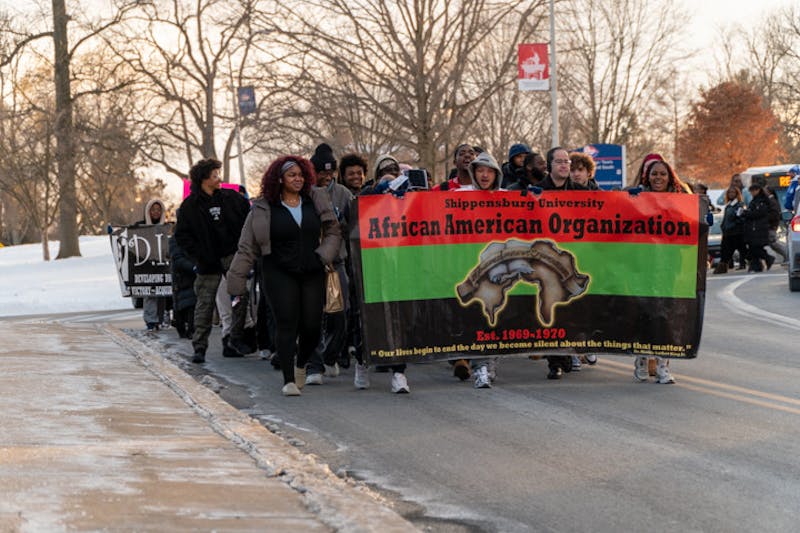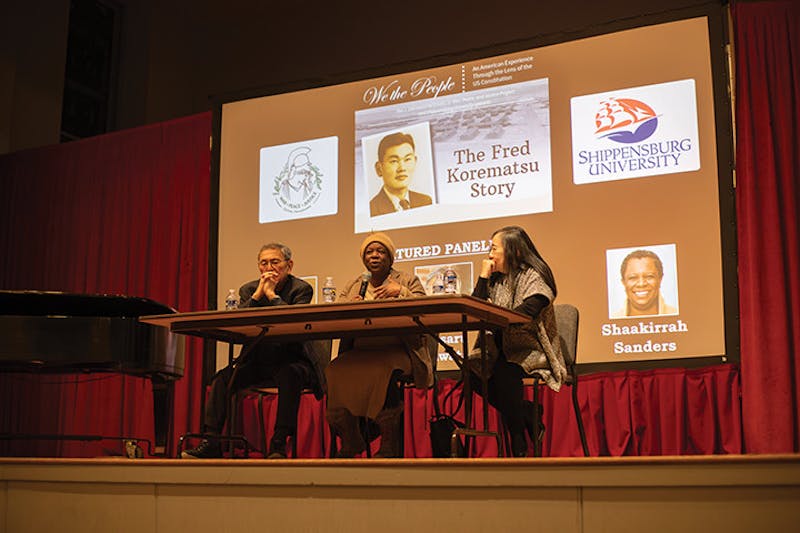The race begins so early that no one ever hears, “Get ready, set, go!” Students do not even realize they are elbowing for room on the track as they move up the rungs of the school system, competing for success. Nevertheless, first-grade students sit in class, not knowing they were supposed to already be warmed-up and lacing their racing shoes.
For the past three years, Jerry Fowler and his colleagues from the Shippensburg University educational leadership department, Phillip Diller, William Cowden and Corinne Eisenhart, have been intensively designing a doctoral program based on two themes: poverty and technology.
The Doctor of Educational Leadership, which was approved Jan. 22, is a joint program between Shippensburg University (SU) and Millersville University.
“The starting line’s not an equal starting line,” Fowler, associate professor of educational leadership and education, said.
Over the past 20 years, one of the biggest issues affecting school systems is poverty, Fowler said. Children in poverty do not have the same advantages of middle and upper income children and it affects their academics.
Fowler began teaching in Prince George’s County in Baltimore, Maryland, where he dealt with inequalities of poverty and race. He noticed that people think that children who come from poverty are less capable and not as smart, Fowler said. Teachers make judgments based on how students talk and how they present themselves, furthering the distance of the starting lines.
Everyone can remember a time when a teacher told him or her they were not cut out for something, Fowler said. It is not enough for a teacher to simply give a student encouragement, but teachers also have to light the path.
Due to legislation that did not previously permit Pennsylvania state schools to offer doctorates, this is SU’s first doctoral program, Fowler said. Three years ago the legislation was changed so that only state schools could offer professional doctorates for those who plan to apply their degree in the field, such as a school.
“It’s always good to go with your strengths,” Tracy Schoolcraft said, an associate provost and dean of graduate studies who supported the doctoral program.
Schoolcraft, as well as Barbara Lyman, provost and senior vice president for academic affairs, and James Johnson, dean of the College of Education and Human Services, were behind the second phase of the program’s creation. They aligned the program with SU’s parameters in terms of course requirements and affordability for students and the school, Fowler said.
The goal of the program is to teach leaders how to give students the greatest opportunity to be successful, said Schoolcraft. They will learn what the issues are, research different methods to tackle those issues and create a concrete plan to bring those solutions to light.
Twenty-four of the 62 credits required to graduate come from six different residency programs, which is the most unique feature of the program, Fowler said. The extensive field experience will require students of the program to handle issues of poverty and technology, so that graduates go into schools as problem solvers.
Effective technology used by teachers and students can be used to give disadvantaged kids the lift they need to catch up to children from wealthier households.
“The technology can be a tool to help kids walk across the bridge and into to the classroom to compete,” Fowler said.
Students will benefit from technology that allows them to be more hands-on with their learning and give them more opportunity to explore the subject areas that interest them. It will also allow teachers to personalize their teaching style for individual students and better track each student’s struggle area, Fowler said.
The pilot group for the program will hopefully begin in May or June 2015 and have eight to 14 students, Fowler said. A master’s degree is a prerequisite and those who apply will most likely already have experience as teachers and administrators.
People are going to look back and say that this was the greatest generation of teachers because of the challenges they were faced with and the expectation that they should be able to make every student successful, Fowler said.
When teachers walk through the classroom door, they make a promise to give their students a better future, Fowler said.



The Slate welcomes thoughtful discussion on all of our stories, but please keep comments civil and on-topic. Read our full guidelines here.